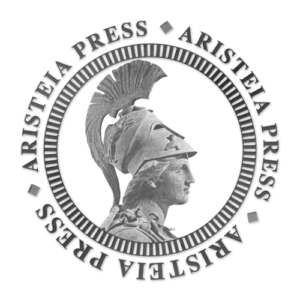‘And now we arrive at a crucial question: Is the Outsider strong enough to create his own tradition, his own way of thought, and to make a whole civilisation think the same way?’
‘The argument I am propounding is quite simple:
Outsiders are a symptom of a dying culture. Without sense of purpose, there can be no life.
Society always begins to die from the head downward. First, the men of genius lose their sense of purpose. When that happens, the decline has begun.’
‘The Outsider is a romantic and a mystic; and what is more, the essence of Western civilisation — the ‘Faustian culture is mystical and romantic. Western culture is the culture of Outsiders. ‘Siegfried, Parsifal, Tristan, Hamlet, Faust are the loneliest heroes in all the Cultures.’
‘The Outsider is not a ‘crazy mixed-up kid.’ He is not a bored and inefficient bank clerk. The essence of the Outsider problems lies in the need for self-transcendence.’
‘The Outsider’s way of thinking is called existentialism. But it might as easily be called religion. It is a way of thought which, like the religious way, regards man as involved in the universe, not just a spectator and observer, a sort of naturalist looking at the universe through a magnifying-glass and murmuring: “Mmm. Most interesting.’
‘The Outsider is a man who struggles for power over his own complexity, over the civilisation which conditions him and tries to distort his identity. Hesse believed that the Outsider is the highest form of life that civilisation knows — next to the prophet. Nietzsche believed that the Outsider is a halfway house to the Superman. In Toynbee, the Outsiders are the men who solve the problems of a civilisation, and keep it alive.’
‘The Outsider’s greatest need is to find a way in which he can become a visionary. The Outsider is a freethinker because the only kind of thought worth anything is free thought. This means that he can accept nothing until he has proved it by his own direct insight.’
‘For the Insider, moral and intellectual ideas are unimportant in comparison with aesthetic satisfaction. But for the Outsider, nothing matters but moral heroism. The Insider does not mind people being trivial and unheroic because life is still good. The Outsider cannot begin living until he has solved the question of how to live; like Ivan Karamazov, he rejects the world, he rejects life if it must be lived trivially. He craves greater intensity of life.’
‘The Outsider is the heroic figure of our time, and Outsider tragedies — those of Nietzsche, Lawrence, Van Gogh, Nijinsky — are the great tragedies of our time. That is why the great bulk of modern literature must be detestable to the Outsider.’
‘The Outsider’s question: How does one become a visionary? is the belief that these moments are not beyond reconstruction and comprehension. What is the essence of the ‘moment of vision’? It would seem to be a sense of the multitudinousness of life, a release of energy into the brain (Nijinsky: ‘God is fire in the head’; Yeats: ‘Heaven blazing into the brain’) which revitalises all the areas of one’s memory.’
‘The essence of boredom and exhaustion is the narrowing of the brain, confinement, a sense of being imprisoned in time. This is its opposite: a sense of the immense strangeness and greatness of life, of ‘unknown modes of being.’ It is a tonic emotion that revitalises and creates courage. In which case the man intent on ‘becoming a visionary’ now has a definite aim: to learn enough about the structure of his own brain to be capable of flooding it with energy at will.’
‘The Outsider cannot help feeling that men do not learn from experience — not the really important things. When adulthood is reached, most men seem to reach a level of maturity at which they remain until their faculties begin to decay. There are, of course, some men who seem to squeeze the subtle essence from their experience and learn by it: the great poets and artists. The last quartets of Beethoven represent the accumulated experience of fifty years, and there seems to be no reason why he should not have gone on indefinitely — writing still greater music as he got older.’
‘Very few men can serve as examples of this kind of development. It requires a peculiar sort of honesty. Among modem writers, W. B. Yeats, Andre Gide, Rainer Maria Rilke, possessed this honesty; Rilke especially deserves closer attention as the epitome of the existentialist poet.’
‘But for the Outsider, all men lose their lives in living them. All men are failures.’
‘The Outsider only exists because our civilisation has lost its religion. The Outsider is the result of Whitehead’s ‘bifurcation of nature,’ and Spengler’s Decline is a study of civilisation in which the Outsider has become the representative figure. The bifurcation of nature is the cause of the decline of the West.’
‘The Outsider sees this as the final difference between men. Will power and obsession are all that counts. The obsessed man is great; the satisfied man is not. The Outsider’s natural attitude to philosophy is this: Do not ask whether the philosophy is true; look at the philosopher and ask whether he is great. A man who is not obsessed cannot be great.’
‘The Outsider is the man who yearns for a return to ancient standards — the standards which recognise that ‘cleverness’ is of the intellect alone, that wisdom is a complex of intellect, emotions and body.’
